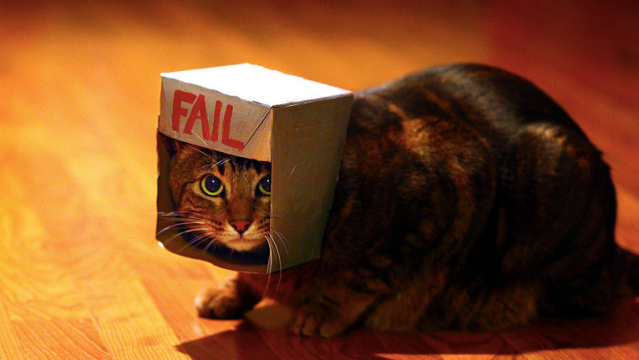I’ve listened to many reasons people fail on diets. One of the most cited is “life got in the way.” A wedding, bachelor party or happy hour can derail even those who claim the highest of willpower. Here’s a solution that’s so simple it’s often overlooked.
Pictures: Chuck Olsen, Teresa Robinson, Moyan Brenn, Eduards Pulks
First, A Hypothetical Thought Experiment
John and Brad are identical twins. They live together, weigh the same (not surprising given that they have identical genes) and follow the same weight loss program. Their diet is rigid. They cut out all alcohol, processed food and anything deemed “unclean.” It has seemingly paid off; after a month of aggressive dieting they have lost a respectable 4.5kg each.
There’s just one problem: A good friend’s wedding is just around the corner, and knowing the amount of food that will be available, they don’t want to undo their progress. At the wedding dinner, John and Brad go into a feeding frenzy. They eat the exact same identical items and stuff themselves silly with the exact same calories.
Now their actions have been identical thus far, but the next day their fate takes two very different turns. John is still in feeding frenzy mode, binging on everything in sight, while Brad easily gets back on the horse. Two months after the wedding, Brad eventually ends up losing 4kg, while John eats himself back to where he started.
Brad did one thing — something so minuscule yet important to his success — differently from John. Brad planned to fail.
Plan to Fail

“Planning to fail” is a tactic I cultivated after reading Lyle McDonald’s philosophy on “diet breaks.” Diets suck. Not only are they difficult to adhere to, they’re even harder to restart after you’ve “falling off the horse.”
If you are an experienced dieter, then you know exactly what I’m talking about. Like John in our example above, cheat days often turn into cheat weeks, which turn into cheat months, which turn into cheat years. (I’ve had about 17 cheat years, if we’re counting.)
That’s why when obesity researchers at Brown Medical School instructed participants to take a short break from their diet, they were surprised. Not only did dieters not gain weight during the break (compared to the control group), but they had no problem getting back on the diet. Simply instructing dieters to take a break made them react completely different from the norm.
What gives?
The exact mechanism is outside the scope of this study, but McDonald has a viable explanation — one that I’ve corroborated after many client interviews: Dieters maintain the feeling of control during breaks that are intentional.
Have the Correct Mindset

Two people can perform identical actions, yet have drastically different outcomes due to mindset. For example, I’ve discussed how mindset alone might determine cardio’s efficacy on weight loss.
In some cases, there is a remarkably inextricable tie between mindset and physiology. An astonishing example: the amount of ghrelin, a hormone that controls hunger, that your body secretes depends on your beliefs about the meal’s caloric contents. The explanation of the “diet break” study is one of these cases.
From working with dieters, I’ve found that unplanned diet failure is de-motivational, anxiety-inducing, and downright mentally draining. It’s a big hit to the resource pool of willpower, self-control, and motivation that drives you towards your goals. Think about the last time you unintentionally failed on your diet. You likely felt guilt, self-loathing, and so on.
Legitimately planned (not rationalized in the moment) diet failure is different; strategy and execution are in harmony. While you may feel physiological discomfort after something as large as a “cheat day,” the psychological repercussions listed above should be close to non-existent.
Where to Go From Here

So what does all this mean? Here’s what you should do for long-term success:
- Look at your calendar 1-2 weeks in advance. Circle the dates where you have big events around food or alcohol. Plan to fail during those days and don’t rely on willpower.
- Don’t feel guilty for your planned failures. It’s important to disassociate guilt with the act of eating. Remember, you’re allowing yourself a free day to eat anything that you want. Consider it part of your diet.
- You can’t plan to fail every day. A big failure once every week or every other week is fine. If you have several small events in one week (drinks with coworkers, a date at a fancy restaurant, etc.) then multiple small failures are fine. For small failures, simply “save up calories” for the event by sticking to lean proteins and fibrous vegetables, while keeping your carbohydrate and dietary fat intake low. This will keep you full and allow you to consume a majority of your day’s calories for that event.
- Don’t step on the scale after big failures. You will likely gain a kilo or two of water weight that will go away in four or five days. Peeking at the scale can mess with your head and undo the disassociation between eating and guilt.
It’s tempting to say “Nah, I’ll just go to that wedding and show some self-control.” But don’t trust the amount of willpower and self-control that “future you” will have. “Present you” is in a very different state as future you, and it may be beneficial to always assume that future you is unreliable. Remember, in the battle of human nature vs self control, human nature often wins.

Comments